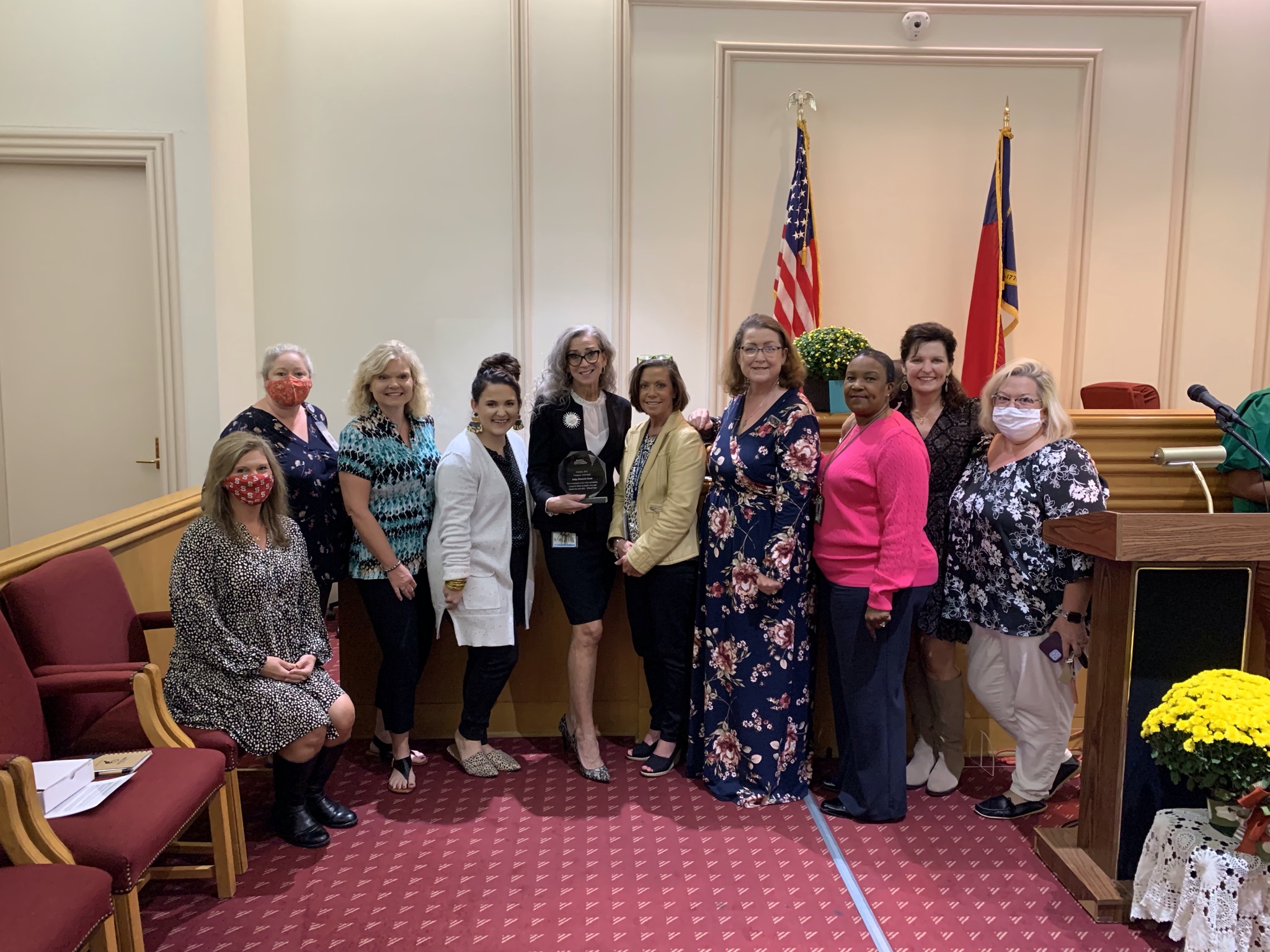The Rural Justice Collaborative (RJC) Advisory Council has selected The Family Accountability and Recovery Court (FARC) in Lenoir, Wayne and Greene Counties as one of nine Rural Innovation Sites. These are the country’s most innovative rural justice programs which will serve as models for other communities. The RJC initiative will provide resources to enable other communities to replicate these Innovation Sites’ successes. “Rural community leaders often don’t have the resources to develop programs from scratch but we know that many rural justice leaders, like those from the Family Accountability and Recovery Court, have found innovative solutions to their complex problems. Before this, there has been no nationally concerted effort for justice leaders and their collaborators in other sectors to share what they know. The Innovation Sites provide a framework that others can build from,” said Tara Kunkel, Executive Director of Rulo Strategies, which organized the RJC in partnership with the National Center for State Courts (NCSC).
The Family Accountability and Recovery Court (FARC) is a program for parents, guardians, or caretakers who are involved with the Department of Social Services and/or struggles with substance use. Many FARC participants have lost or are at risk of losing their children because of abuse and/or neglect. FARC provides treatment, intensive case management and judicial supervision to increase the likelihood of reunification of families or positive outcomes for the parents and children. Participants have access to substance and mental health assessments and comprehensive treatment in Lenoir, Wayne, and Greene Counties. Intensive case management includes weekly contact with the FARC Case Coordinator and Peer Support Specialist, random substance screenings, recovery groups, and bi-weekly court appearances. During FARC, participants meet with their parent attorney and communicate directly with the FARC Judge. These relationships, along with collaboration with community agencies, provide support and encouragement as FARC participants continue in the program and their journey of recovery. Strong partnerships with Hope Restorations, Inc., the Department of Social Services, Guardian Ad Litem, Kinston Behavior Health Center, PORT, Waynesboro Clinic, County Health Departments, SAFE of Lenoir, NC State Cooperative Agency, Eastpointe, Partnerships for Children, and Lenoir and Wayne Community Colleges make an impact in the lives of the families served by providing needed support and services both during and after their time in FARC.
“Family Accountability and Recovery Court is truly a communal effort. We are a team. Our team members are representatives from the community, the court, and the parents. We are all members of the team because we know it takes all of us working together with the parents so that the family succeeds. We are members of the team because, as I heard another judge say, ‘we not only want parents to get their children back, but we want children to get their parents back.’ “Judge Beth Heath
Leading By Example
Over the next three years, the RJC will work with The Family Accountability and Recovery Court to create educational materials that it will feature in an online resource center. Thanks to funding from SJI, the program will also offer visits to leaders from other communities and participate in regional conferences. “The RJC will provide a vast knowledge pool filled with actionable content which individual communities may not have the resources to compile on their own,” said Kristina Bryant of NCSC who helps coordinate the RJC.
About the Rural Justice Collaborative
The RJC showcases the strengths of rural communities and highlights the cross-sector collaboration that is a hallmark of rural justice systems. The work under the RJC is supported by a cross-sector advisory council composed of rural judges along with additional stakeholders in the justice, child welfare, behavioral health, and public health systems. The advisory council will guide the multi-year initiative and identify innovative programs and practices.
The RJC priority focus areas are:
- Increasing access to behavioral health treatment
- Reducing victimization
- Facilitating employment/educational opportunities for justice involved individuals
- Eliminating barriers of access to justice
- Reducing incarceration
- Facilitating reentry
- Reducing the number of children in foster care due to substance use disorders
About the National Center for State Courts
The National Center for State Courts, headquartered in Williamsburg, Va., is a nonprofit court organization dedicated to improving the administration of justice by providing leadership and service to the state courts. Founded in 1971 by the Conference of Chief Justices and Chief Justice of the United States Warren E. Burger, NCSC provides education, training, technology, management, and research services to the nation’s state courts. Learn more at ncsc.org.
About Rulo Strategies
Rulo Strategies is a woman-owned business focused on supporting and evaluating initiatives designed to foster collaboration between diverse stakeholders with distinct but complementary missions. Founder Tara Kunkel served as a Senior Policy Advisor to the U.S. Department of Justice, Bureau of Justice Assistance (BJA) where she advised on the policy direction of all opioid-related and overdose prevention initiatives. Learn more at rulostrategies.com.
About the State Justice Institute
The State Justice Institute (SJI) was established by federal law in 1984 to award grants to improve the quality of justice in state courts, and foster innovative, efficient solutions to common issues faced by all courts. SJI is a non-profit corporation governed by an 11-member Board of Directors appointed by the President and confirmed by the Senate. Learn more at sji.gov.

